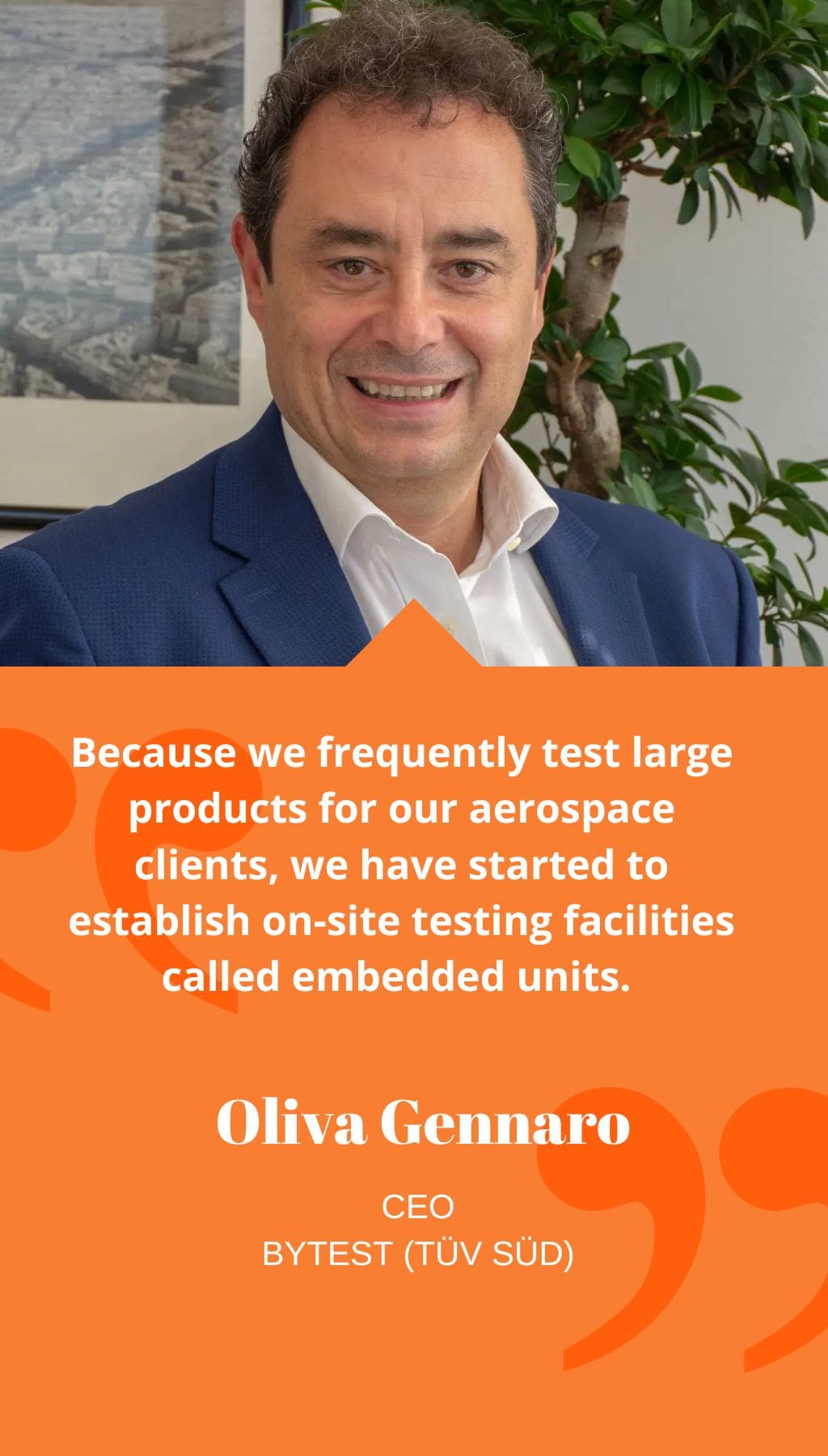
- Italy | 2 June 2018

Bytest has been part of TÜV SÜD since its acquisition in 2012. Can you provide more information about the development of Bytest as a testing company in the aeronautical sphere?
TÜV SÜD is a company based in Germany that specializes in inspection, certification, and testing services for various industries. In the early 2010s, TÜV SÜD identified a gap in the non-destructive testing (NDT) market. NDT is a service commonly offered to companies in industries such as aerospace, automotive, and oil and gas, which aligns with TÜV SÜD’s areas of expertise. Bytest was one of four companies acquired by TÜV SÜD at the time, with the others located in South Africa, North America, and Korea. Bytest now serves as TÜV SÜD’s global competence center for NDT in the aerospace sector, with 90% of our activity in the civil aviation segment and the remainder in military and defense.
Since 2012, Bytest has experienced an average of €12 million in sales per year, with a peak in 2014 of €15 million due to the strength of the oil and gas industry. During the last four years, Bytest’s senior management team has changed, enabling the company to grow. Today, our main competitors are prime manufacturers and their supply chains, as they cover the NDT part of the manufacturing circle themselves. However, this poses a potential conflict of interest, and to cover peaks in manufacturing, these companies outsource the testing.
Can you provide further details about the various testing services offered by Bytest and any added-value services you can provide to clients?
Our services can be categorized into destructive testing (DT) and NDT. We cover the two primary areas of NDT: infrastructure testing for both metals and composites, and engine parts testing. Our testing methods include ultrasonic testing, radiographic testing, and dye penetrant testing, among others. We also offer laboratory facilities for DT, failure analysis, and reverse engineering services. Additionally, Bytest has a training department for both our employees and clients. The technical expertise demonstrated by our personnel is one of our best sales tools, and we focus on maintaining high levels of knowledge.
Because we frequently test large products for our aerospace clients, we have started to establish on-site testing facilities called embedded units. We set up operations within a client’s manufacturing plant, which provides significant advantages for both Bytest and our clients, such as improved turnaround times and no risk of samples breaking during transport. We are investing in these sites, which are staffed by Bytest personnel and are legal subsidiaries rather than our main locations at Volpiano and Benevento.
What is the regulatory environment like for the aeronautical sphere, and can you explain the process of certification?
We must follow all standards and regulations applied by Accredia, the Italian testing and accreditation body, as well as NADCAP, the North American accreditation body for aerospace. Bytest recently applied to ENAC to become accredited to carry out NDT aircraft in operation, in addition to our regular testing of new aircraft parts. We also work on an international basis for civil and military aircraft and require client certification for this segment. To work for a large multinational, we must be certified by Accredia initially and then pass additional qualifications for the specific company before we can begin working on their behalf. As a result, the process is relatively lengthy.














